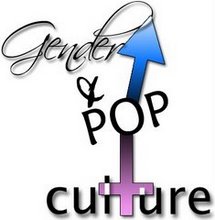Anime is highly based on the principle of completely escaping what is normal. Not only do people fly and robots roam the earth, but people act and behave quite abstractly. The writers of Anime try to create characters that are just as abstract as the world they have their characters living in. The result of this effort is a genre of entertainment with personalities that are exclusive to it alone. With this in mind, one would immediately assume that if there were ever to be a form of entertainment that best escaped falling into the trap of reinforcing norms, it would have to be Anime.
I began this study with that mentality. For the most part, I saw Anime as a fairly progressive form of entertainment. Many of its characters behave in ways that are far outside of what is considered normal, and in doing so tear down a lot of established ideas. The viewers of this media are then exposed to ways of thinking and living that are very different from their own, and are then more inclined to look more closely at their own lives. They will begin to consider a lot of the norms that they have been taught to accept as fact, and just in the revelation of more than one option, Anime has created huge change.
Unfortunately, as I did my study I discovered that Anime may not be the quintessence of progression that I originally thought it was. It is often very easy within Anime to see where gender norms are defied and new ways of thinking are explored, but just as some norms are torn down others are left untouched. This practice of selective rebellion can have just as many detrimental effects as it does positive. By ignoring some social norms while challenging others you are in effect saying that those norms you have not questioned are unquestionable.
Anime falls into this trap many times. It’s very difficult to catch; often I find myself so focused on the challenges and the ideas put forth that I forget to question all that was not suggested or put forth. For example, my post on Happy Lesson does a lot to champion anime in terms of progression. I explain that there is no definition of a good mother, and that certain qualities (even highly anti-social qualities) don’t necessarily make you incapable of taking care of a child. I went very wrong with this post when I failed to look at a much bigger picture. I said that society shouldn’t deem “bad mothers” as such because there is no definition for “good mother.” I wonder now why I didn’t address the fact that society shouldn’t really have the authority to judge who is bad and who is not. The factor that Happy Lesson and I failed to take note of is that we are essentially saying “there is a system in place that doesn’t work” rather then suggesting “there shouldn’t be a system at all.” By never making the bigger suggestion both I and the Anime have reaffirmed the belief that women should be gauged in some way on how well they raise their children; not a very progressive idea at all.
Anime in the end is not all that different from any other media form, it can be both highly progressive and not at all. The same can be said about a lot of American comic books and cartoons; some are more progressive than not, others reinforce norms more than they challenge them, but in the end they all do both. What truly separates Anime (and the media like it that strive for progression) from those that seem apathetic to change is the effort they put into trying to create change. Allan Johnson, in his piece Patriarchy: A System An It Not a Him They or Us, best explained why this is true in a quote at the end of his piece:
“We’re involved in patriarchy and its consequences because we occupy social positions in it, which is all it takes. Since gender oppression is, by definition, a system of inequality organized around gender categories, we can no more avoid being involved in it than we can avoid being female or male. All men and women are therefore involved in this oppressive system and none of us can control whether we participate, only how…”
Though Anime seeks to create worlds that greatly differ from our own, these worlds still mirror our own, if they did not it would be far too alienating and unappealing as a form of entertainment. Just as we as a society cannot escape the influence of patriarchy, neither can a form of media that even loosely mirrors it. Through this study I realized that Anime the fact that Anime has so many progressive ideas hardly makes it progressive since it has just as many reinforcements. What makes it progressive is that, more often than most entertainment, it tries to move us forward socially. Making an effort is in the end better than not, and I think I can speak for all of us when I say that is a patriarchal participation we can all get behind.


